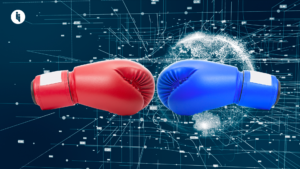Remember 2016? Bieber’s Love Yourself was top of the charts, Spotlight won best picture, and Game of Thrones won best drama, while the Brits Brexited and Americans Trumped.
So with all that going on, you might’ve missed something big that happened in Colombia — 2016 was when, after years of negotiations in Havana and elsewhere, Colombia signed a landmark peace deal with its biggest guerrilla group (FARC) in a step many hoped might convince other rebels to follow. Colombia’s then-president (Santos) even won the Nobel Peace Prize.
But now, eight years and two presidents later, a lightning offensive by the world’s oldest guerrilla movement risks upending that hope completely.
Stay on top of your world from inside your inbox.
Subscribe for free today and receive way much more insights.
Trusted by 146,000+ subscribers
No spam. No noise. Unsubscribe any time.
Here’s what you need to know.
Gustavo Petro won the presidency in 2022 pledging to bring ‘total peace’ to the country after decades of conflict involving the military, guerrilla movements, and paramilitaries.
A former leftist guerrilla himself, Petro’s plan involved holding direct and parallel talks with several groups at once, using different strategies and legal tools to tackle the specifics in each negotiation and potentially address some of the underlying drivers.
Petro notched up some early wins, too, signing ceasefires with several groups including the big kahuna known as the National Liberation Army (ELN) — it’s a rural-based Marxist group that finances itself via drug trafficking and other crimes. But shortly after that 2023 ceasefire expired last August, the ELN attacked a military base and so Bogota ditched the peace talks. Things have been frosty ever since.
Now fast forward to January, and the ELN launched a surprise attack against rival factions in the Catatumbo border region near Venezuela, leaving 80 dead and displacing thousands more. The group is now on the verge of controlling the entire cocaine-producing region (again).
And here’s why that matters.
- Regional insecurity
It’s been a while since Colombia saw this kind of large-scale coordinated operation, hitting police stations and infrastructure with bombs and displacing 50,000 people (including into already shaky Venezuela) while another 35,000 hunker down at home.
Regional governments, already grappling with the eight million folks who’ve fled Maduro’s Venezuela (where the ELN also operates), will be watching this ELN resurgence warily.
- Drug trafficking
As the ELN conquers more turf, it’ll control more coca plantations, cocaine labs, and smuggling routes, all of which will in turn line its pockets, fund its recruitment and rearmament, and fuel its influence. And that’ll all make it tougher for the government to a) bring the ELN back to the negotiating table and/or b) take the group head on.
In addition, a consolidated supply chain under the ELN could further increase cocaine supply, in turn further complicating Colombia’s ties with the US, where Trump 2.0 has made a crackdown on drugs and unlawful migration a key tenet of his administration.
- Timing
And of course, Murphy’s Law dictates that this all comes at a lousy time for Petro, whose government is in quasi-disarray after various twists and turns saw him lambast his own cabinet on live TV for hours before calling on them all to resign — all while Colombia’s erstwhile security partner (the US) just froze much of its help, whether for counter-narcotics or poverty alleviation (the two are interlinked).
So, what’s next?
Petro has declared a state of emergency in Catatumbo and deployed thousands of troops there, but absent a military breakthrough, there’s no obvious way forward. This whole saga is a reminder that, any time one group lays down its arms, rivals can quickly fill the vacuum.
So Petro’s strategy to negotiate directly with multiple groups at once made sense in theory, but ELN’s resurgence suggests it’s just not working in practice — and he’s now lacking the political and fiscal clout needed for any meaningful kind of pivot.
Meanwhile, his term ends next year, and voters are already signalling a return to conservative candidates promising a tougher approach.
INTRIGUE’S TAKE
You can almost feel the cyclical exasperation in the way President Petro recently questioned why cocaine is even illegal anymore:
- There’s a cycle between more supply leading to lower prices, which then fuels more demand abroad, in turn incentivising more supply from Colombia again
- There’s a cycle between dismantling or dethroning one group, only to see its turf simply subsumed by another faction or rival, and
- There’s a cycle as weary voters pivot between versions of right-leaning ‘mano dura’ and left-leaning ‘total peace’ — the right-leaning Santos arguably won the Nobel Prize after fusing the two (he backed his peace strategy with force).
There’s also a cycle in the way this all shapes travel and investment decisions abroad, making growth tougher at home. But Colombia has form here: 15 years ago, it yoinked a quote from a popular French travel guide to tackle foreign fears head-on, jujitsu-ing them into a positive motto: ‘Colombia: where the only risk is wanting to stay’.
Also worth noting:
- The EU and the US remain the world’s largest markets for cocaine.
- Colombia released its landmark truth commission report in 2022, finding that the conflict had left 450,000 people dead over six decades, and urging the government to end its militarised approach to drug policy.





